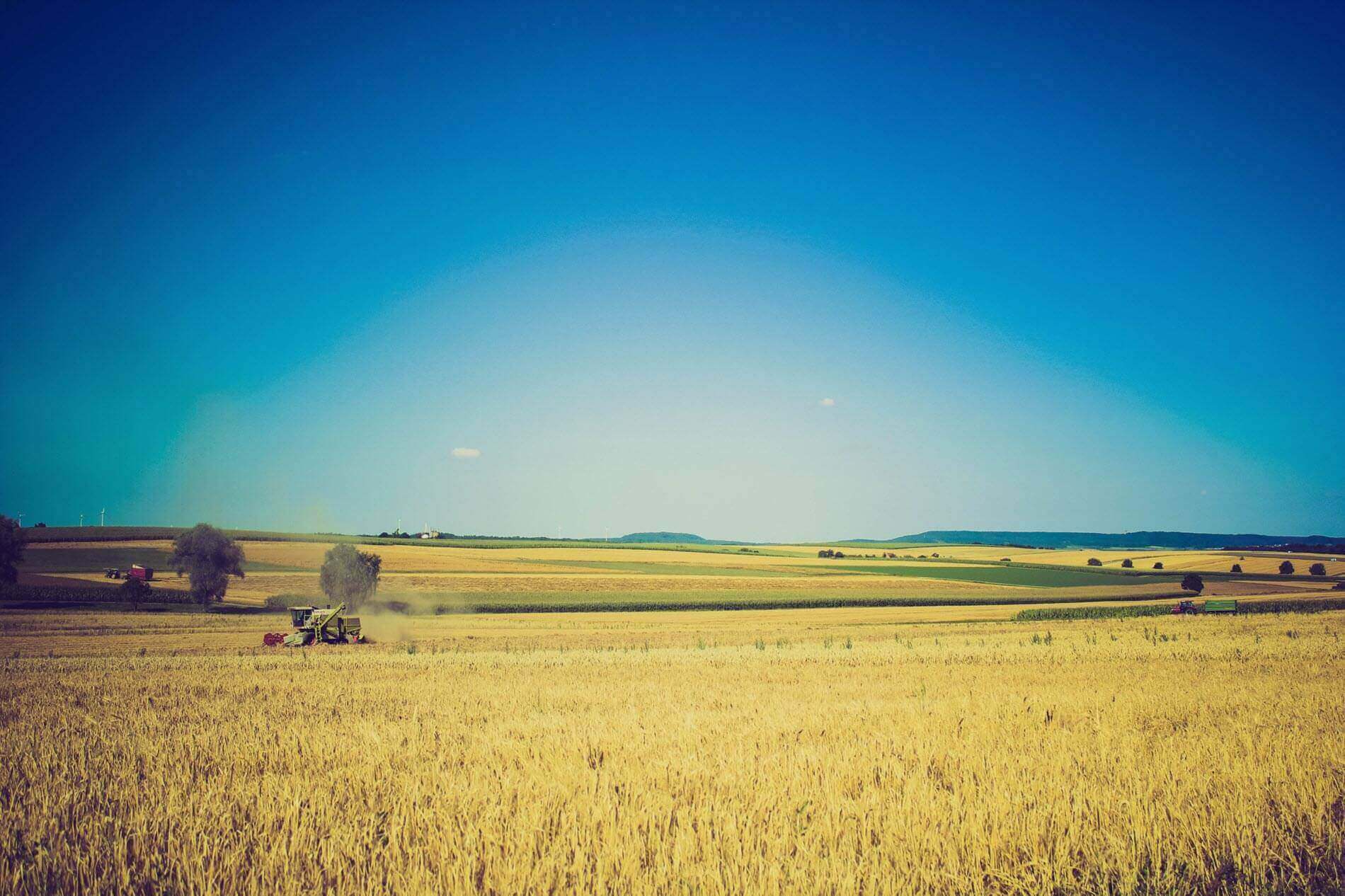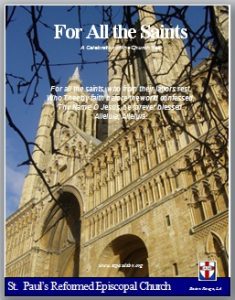
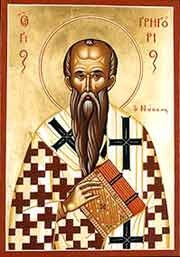
Gregory, Bishop of Nyssa, 394
Gregory was born around 334. He was the younger brother of Basil the Great. After the deaths of Basil and his sister, Macrina, he devoted himself to more strenuous service and study. His most famous works include, On the Making of Man, Life of Moses, Commentary on the Song of Songs, and his Great Catechism. In 381, at the Council of Constantinople, he was honored as “the pillar of the Church.”
He fought valiantly for the Nicene faith. He, Basil the Great, and Gregory of Nazianzus are known as the Cappdocian Fathers;
Scripture Reading: John 14:23-26;
Collect—Almighty God, who hast revealed to thy Church thine eternal Being of glorious majesty and perfect love as one God in Trinity of Persons: Give us grace that, like thy bishop Gregory of Nyssa, we may continue steadfast in the confession of this faith, and constant in our worship of thee, Father, Son, and Holy Spirit; who livest and reignest now and for ever. Amen.
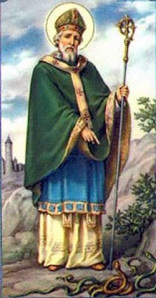
Patrick, Bishop & Missionary of Ireland, 461
Patrick was born in 390 on the northwest coast of Britain. His grandfather had been a priest and his father a deacon. When Patrick was 16, he was captured by slave-traders. He was carried to Ireland and forced to work as a shepherd. When he was 21, he escaped and returned to Britain. He returned to Ireland in 431. Patrick spent the rest of his life converting the people of Ireland from pagan religions such as Druidism. Men, get ready for our St. Patrick’s day celebration at our home where we will have some good Irish fellowship and a study of the life of Patrick;
Scripture Reading: Matthew 28:16-20;
Collect—Almighty God, who in thy providence didst choose thy servant Patrick to be the apostle of the Irish people, to bring those who were wandering in darkness and error to the true light and knowledge of thee: Grant us so to walk in that light that we may come at last to the light of everlasting life; through Jesus Christ our Lord, who liveth and reigneth with thee and the Holy Spirit, one God, for ever and ever. Amen
.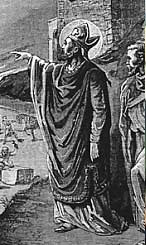
Cyril, Bishop of Jerusalem, 386
Cyril was born around 315 and became bishop of Jerusalem in 349. He is famous for his catechisms that he prepared for those who were awaiting baptism. His five Mystagogical Catecheses on the Sacraments were composed for the newly baptized. Cyril instituted the observance of Palm Sunday and Holy Week;
Scripture Reading: Luke 24:44-48;
Collect—Strengthen, O Lord, we beseech thee, the bishops of thy Church in the special calling to be teachers and ministers of the Sacraments, that they, like thy servant Cyril of Jerusalem, may effectively instruct thy people in Christian faith and practice; and that we, taught by them, may enter more fully into the celebration of the Paschal mystery; through Jesus Christ our Lord, who liveth and reigneth with thee and the Holy Spirit, one God, now and for ever. Amen.
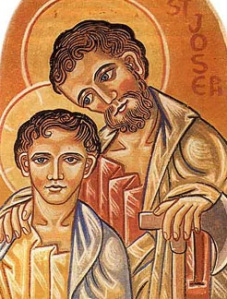
Saint Joseph
It is often very easy for us to forget Joseph, but we see in the gospels what a loving husband he was to Mary, and no doubt, with what care he brought up Jesus in his household. God communicated with Joseph in dreams and visions to protect the infant Jesus. He was a descendant of David and worked diligently as a carpenter. Although we know very little of him, we see in him the kind of quiet devotion which glorifies God;
Scripture Reading: Luke 2:41-52;
Collect—O God, who from the family of thy servant David didst raise up Joseph to be the guardian of thy incarnate Son and the spouse of his virgin mother: Give us grace to imitate his uprightness of life and his obedience to thy commands; through the same thy Son Jesus Christ our Lord, who liveth and reigneth with thee and the Holy Spirit, one God, for ever and ever. Amen.
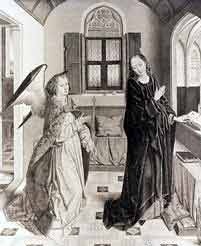
The Annunciation of Our Lord
This is the day we celebrate the coming of the archangel Gabriel to Mary, to announce that she would be the mother of the Lord Jesus Christ. So many paintings, songs, and poems have been devoted to the Annunciation. You will notice that March 25 is nine months from December 25. Today we marvel at Mary’s words, “Let it be to me according to thy word,” as she accepted both the shame and the blessedness that would come to her as a result of her obedience to God. We also marvel once again at the mystery of the Incarnation, as the blessed God becomes incarnate in the child whom Mary conceives in her womb;
Scripture Reading: Luke 1:26-38;
Collect—We beseech thee, O Lord, pour thy grace into our hearts, that we who have known the incarnation of thy Son Jesus Christ, announced by an angel to the Virgin Mary, may by his cross and passion be brought unto the glory of his resurrection; who liveth and reigneth with thee, in the unity of the Holy Spirit, one God, now and for ever.
Amen.
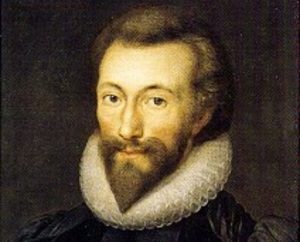
John Donne, 1631
John Donne is remembered primarily as a poet, but we often forget that he was an Anglican priest. At some point in our education, we have probably read his poem, “Death, Be Not Proud,” or “Meditation 17,” with its immortal words, “Any man’s death diminishes me, because I am involved in mankind. And therefore never send to know for whom the bell tolls: It tolls for thee.” John Donne was born a Roman Catholic and was educated at Oxford and Cambridge. King James I persuaded Donne to be ordained a priest in the Church of England. He became the most popular preacher in England. His sermons reveal that he was both a scholar and poet. He was Dean of St. Paul’s Cathedral, London from 1622 until his death;
Scripture Reading: Ps. 16:5-11;
Collect—Almighty God, the root and fountain of all being: Open our eyes to see, with thy servant John Donne, that whatsoever hath any being is a mirror in which we may behold thee; through Jesus Christ our Lord, who liverth and reigneth with thee and the Holy Spirit, one God, for ever and ever. Amen.











